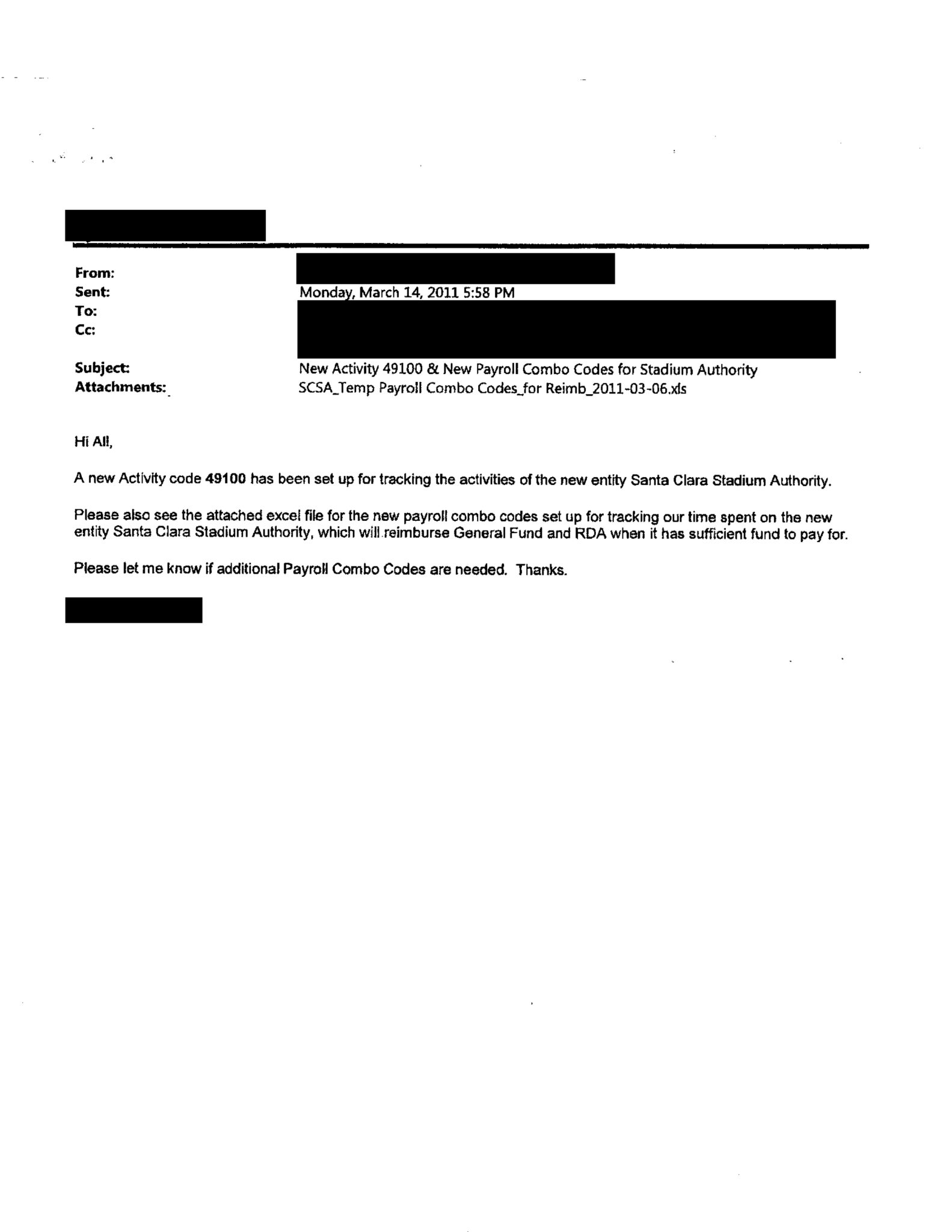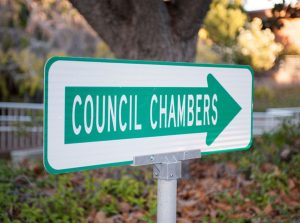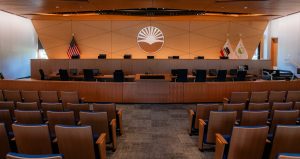On March 19 the Measure J audit committee—Mayor Lisa Gillmor and Council Members Patrick Kolstad and Teresa O’Neill—reviewed the status of roughly 40 recommendations to the Santa Clara Stadium Authority (SCSA) from management consultant Harvey M. Rose (HMR) Associates.
In the HMR’s final report, officially published last August, the consultant reported that “the stadium Authority did not establish effective contract administration procedures to ensure and report contract compliance to the Board and public in a number of key areas.”
This included “monitoring the Stadium manager company to ensure that they provided all information and planning documents to the Stadium Authority as required in the various agreements and that those documents were presented to the board.”
Thirty-two of HMR’s recommendations are complete or partially complete and five haven’t been started, either because the City doesn’t have the capacity or in-house expertise to take on the additional work, or, in the case of a financial audit, it would be inappropriate for the City to be its own auditor.
The 49ers stadium management company, ManCo, has provided some documents and financial records. ManCo is also providing electronic read-only access to the Non-NFL event information for City staff in the Stadium Authority’s office at Levi’s Stadium.
City staff can’t undertake tasks that require financial audits because, as City Manager/Stadium Executive Director Deanna Santana’s report states, “it would be inconsistent with professional standards to have these entities perform their own due diligence and validation of these expenditures.”
Santana reiterated the need to have an independent audit function, either as a municipal equivalent of an inspector general or by an outside CPA firm. This is in addition to the annual Stadium financial audit conducted by an outside CPA firm.
“I will be recommending additional resources for professional audit support on the various financial reporting requirements that the SCSA Board has directed for past years and going forward,” she wrote. “The availability of these professional services will expedite time required to complete these reviews, ensure the independence of the findings and integrity of work absent of conflict.”
The committee has agreed to add seven dedicated staff positions for contract management and auditing. In the decade since Levi’s Stadium was first conceived, this is the first time the City Council (the Stadium Authority Board) and the Mayor (Stadium Authority Chair) have acknowledged the need for an internal auditing function.
“It’s not an unusual thing to have a public employee as a watchdog over other public employees,” said Committee Member Kolstad.
Only one of the 40 recommendations had to do with reimbursement of stadium-related work and $114,000 that HMR estimates the City never billed the 49ers.
The reason they had to estimate it was that there’s no record showing these hours were actually worked.
HMR arrived at this estimate using a sampling of stadium non-event activities—some of which were retroactively classified as stadium-related—and extrapolating this over 39 stadium events from 2014 through June 2016. “Staff is currently working on this item,” the report states.
The committee was formed in 2016 to oversee the work of management consultant HMR in an audit of the Santa Clara Stadium Authority’s compliance with Measure J, the voter-approved ballot measure allowing Levi’s Stadium to be built.
That work was completed and the final report published in August 2017. However, the committee has continued—and plans to continue—to meet for ongoing oversight of Stadium Authority operations.
Ad hoc committees must be less than a majority of the Council, and other Council Members may not even attend. The meetings aren’t broadcast or recorded. Last year Council Member Patricia Mahan asked for the committee to be a committee of the whole, but Mayor Lisa Gillmor and her Council majority refused to consider this.
Claims About Absent Stadium Time-Tracking Direction Continue to be Repeated—But City Emails Show First Time Codes in 2011
Also at Monday’s meeting of the Measure J Audit committee Santana stated that there was no time-tracking system for stadium work prior to the City Manager’s Aug. 5, 2016 directive. Respecting “the coding of timecards, the directive from the City Manager is fairly recent.”
City emails the Weekly acquired in 2016 show that this is incorrect, although it was repeated by HMR and repeated to TV and newspaper reporters.
The emails show that citywide direction about stadium activity tracking goes back three years before construction began. On March 14, 2011, the finance department distributed four new payroll codes for stadium-related time tracking. By 2013 there were specific payroll codes for construction preparation activities. Ten payroll codes were dedicated to police department activity.












0 comments